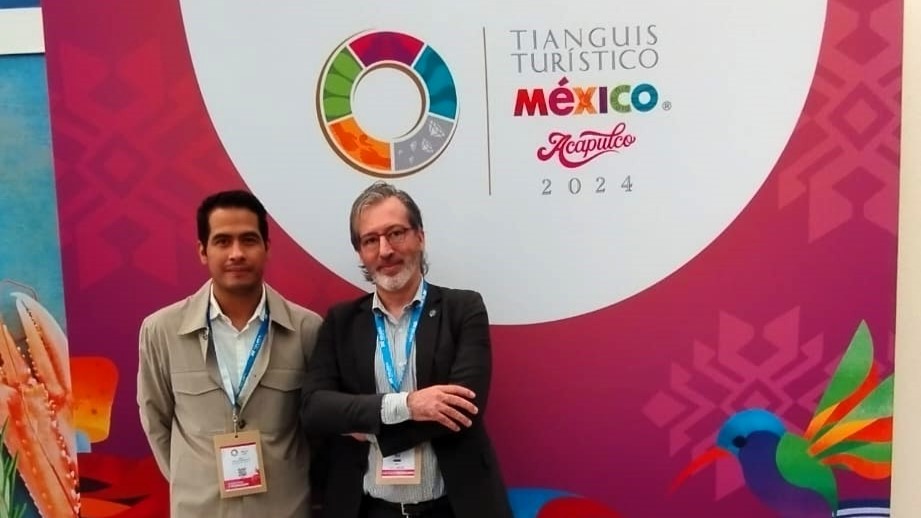2022 is here and it is time to start implementing the hotel marketing strategies that will allow you to have a good year in your hotels. Or at least, help as much as possible to make it so…
That’s why we want to bring you the highlights of the Dingus and Booking.com webinar in which, a few weeks ago, we told you some key points to consider regarding content and long-stay rates.
Our partners at Booking.com based their study on travel predictions on these 7:
- 73% say that holidays will be completely work-free in the future.
- 58% agree that it is important for travel to benefit the local community at their destination
- 62% agree that technology helps alleviate travel anxiety
- 60% want to meet new people on holiday
- 19% say they are excited by the anticipation of the trip when it starts
- 63% feel they have to make up for lost holiday time
- 79% agree that travel benefits their mental and emotional wellbeing more than other ways of looking after themselves.

Taking all this into account, the platform recommends adding the most complete information about your accommodation, optimising the price and availability according to demand, and using the tools, functionalities and products at your disposal. When it comes to working these contents into the visibility of your hotel, Booking.com reminds us that “11% more bookings are made in accommodations that show health and safety measures“, and that they keep them duly updated. In addition, 82% of global travellers consider it important to travel sustainably, 70% share that they prefer to book accommodation if they know it is environmentally friendly, and 49 out of 100 admit that the pandemic has changed their attitude towards making positive changes in their daily lives.
Flexibility, polarisation of the BookingWindow and longer stays
Other considerations for Dingus hotels connected to Booking.com include recommending flexible rates, as “90% of travellers are booking them, due to the uncertainty we live in and that most want to change their plans if they need to”. On the other hand, “there is a clear short-term decision making, accompanied by another strong group of customers making long-term decisions”. The recommended actions are to “charge rates for more than a year ahead and optimise the rate structure to capture both customer segmentations”.
Another consideration has to do with the increase in bookings for stays of more than seven days and the possibility of capturing these travellers “by configuring fares specially designed to attract those stays of a week or more, and generate more revenue“. How: by charging weekly rates. You should also bear in mind that, according to Booking.com data, “more than two-thirds of bookings are now made through mobile devices (in the first quarter of 2021 its travel app was the most downloaded worldwide) and when accommodations offer mobile rates to capture this segment, bookings from this device increase by 28%“. Finally, Aruna Ajwani (Senior Account Manager) highlighted that “in order to help accommodations get more visibility and bookings, the Genius programme has been extended to all Booking.com users who have an account. Accommodations that have joined the programme since the change was made have seen, on average, 29% more bookings“.
Dingus DataHotel forecasts for 2022
Although medium and long term forecasts are logically affected by each ‘script twist’ imposed by the pandemic, at the time of this online session the analytical platform at the service of the hotelier Dingus DataHotel showed us a certain volume of bookings already distributed, especially between May and June. As our Customer Services Specialist, Ángel Cáceres, pointed out, there is still “a strong willingness to travel and it is linked to the trend analysed by Booking.com to book earlier”.
Making a brief comparison on the purchase intention in 2019, the pre-pandemic year, between September and December “there was a clear upward intention to book for the following year, which would be 2020. As a highlight we find the 29 November 2019, which was the date of “Black Friday” and where more than 5,600 bookings were registered. If we visualise what we have obtained in the last months of this year 2021, we find that precisely on this last Black Friday on 26 November, no more and no less than 12,000 bookings were registered for accommodation during 2022: more than double what we found in 2019″. Of course these figures will always be provisional as the COVID is constantly changing the rules, but it makes the traveller’s intentions clear.
BookingWindow and length of stay

What we saw on the webinar date at Dingus DataHotel is that stays of more than 5 nights and from eight nights onwards account for “¾ of the total number of confirmed bookings. Also the advance purchase accounts for the same proportion of the total (three quarters) in the range of 3 to 6 months or 6 to 12 months. This data is important in order to offer availability and prices for that date range”. In this way, the customer can access these prices and the hotels can distribute them based on these premises:
- Management of long stay prices through integration (we will soon be holding a new Dingus webinar, so that our clients know how to configure and distribute them to the channels).
- Incentivise sales with special prices and ensure predictability through specific cancellation policies.
- Customer segmentation, since the profile of those who stay with us for a longer period of time will not be the same as that of those who come to spend a weekend.
In his speech, Cáceres also spoke about the trends we are observing at Dingus regarding the production of bookings within hotel distribution. In this sense, “looking at the segments and if traditionally the tour operator is the one that generated a higher volume for those long stays and in the purchase forecast, we are currently seeing how online agencies and the booking engines themselves are producing data that, as a whole, are practically equalling and even surpassing those of the TTOO”.

Finally, in terms of destinations by volume of bookings, Gran Canaria is the favourite in the Canary Islands, and Majorca in the Balearic Islands. Other places outside Europe, traditionally in demand, such as Punta Cana and Riviera Maya, are also among the top bookings and very popular with the American and Canadian markets.
Cristina Torres. Corporate communication and media relations
cristina.torres@hittgroup.es





